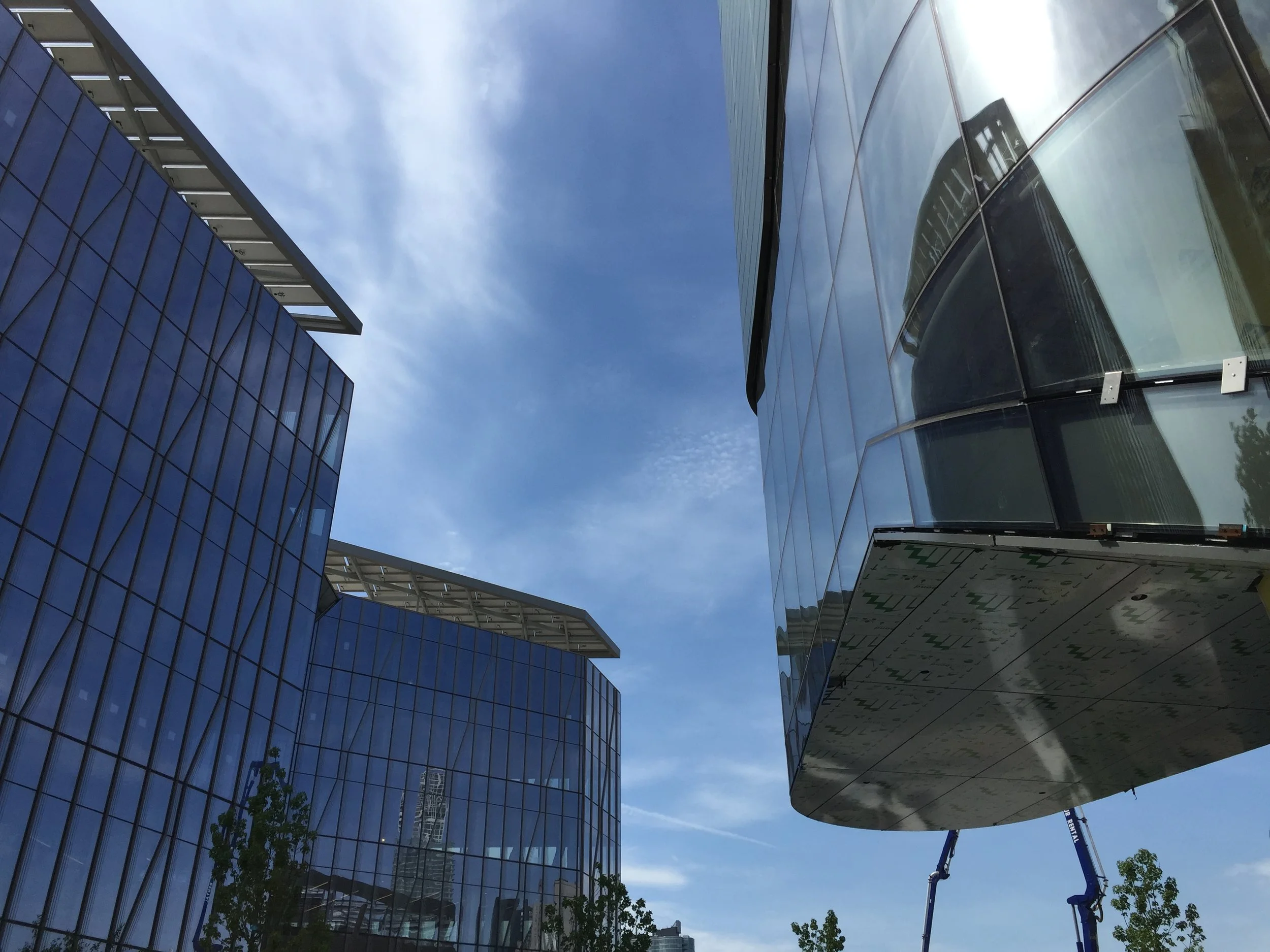The Internet of Things (IoT), Innovation & Technology is a dynamic subject that touches an array of fields that extends outside the energy sector. Washington D.C. is one of numerous cities across the country that are racing to take advantage of the potential improvements from IoT technology that will impact different parts of the city’s ecosystem.
New York's Approach to Energy Technology and Innovation (Q3 2018)
Improvements in technology have consistently moulded the cities we live in; IoT and other related modern technologies are bringing about a similar leap in how they continue to evolve. The opportunity and role it has to play in achieving New York’s Reforming the Energy Vision (REV) plan, as well as OneNYC’s citywide emission reduction goal of 80% by 2050, cannot be ignored.
Boston's Approach to Energy Technology and Innovation (Q3 2018)
AEG’s Boston chapter is approaching its one year anniversary with the upcoming Q3 Series on IoT, Innovation, and Technology. Past Boston AEG series have had spectacular turnout with a highly-engaged stakeholder audience, and this series should be no exception. Boston is at the top of the charts for National Clean Tech Leadership, primarily derived from its ability to innovate and its access to a high-quality workforce.
Maintaining Boston’s Momentum with Smart Buildings & Grid Modernization (BAE Q2 2018)
The overarching problem and opportunity in Smart Buildings and Grid Modernization is that building operations account for 75% of the nation’s energy consumption, and 70% of the grid is over 25 years old. In cities like Boston, the working towards development includes energy efficient buildings that possess Distributed Energy Resources (DERs).
DERs and Alternative Infrastructure Solutions in Washington DC (WAE Q2 2018)
DC has been paying more attention to the modernization of the electric grid. Cost reductions and improved performance of DERs are creating opportunities for the grid to operate more efficiently and at lower costs. Over the past few years, the city has been exploring how buildings and facilities that were primarily end-users of electricity can assist in power management and delivery across the District.
OneNYC's 80x50 Must Include Electric Grid Modernization & Improvements to Buildings (NYAE Q2 2018)
Set forth by Mayor De Blasio, OneNYC aims to reduce citywide greenhouse gas emissions to 80% below 2005 levels by 2050. Reaching this target relies on a variety of energy efficiency efforts. Currently, 80% of NYC emissions come from buildings. Taking into account the pace of current developments, 90% of existing buildings are expected to remain standing in 2050.
New York Resiliency, Critical Infrastructure and Microgrids (NYAE Q1 2018)
As a coastal city, New York faces multifaceted levels of risks from extreme weather events. Some parts of the city are still recovering from Superstorm Sandy in 2012, which highlighted the massive financial and social cost of these types of disasters, as well as the city’s under-preparedness for such events. With recent hurricanes causing extreme flooding, these critical infrastructure risks apply across the country and the globe.
Boston's Resiliency Needs and Energy Infrastructure (BAE Q1 2018)
Washington DC: A Member of 100 Resilient Cities (2018 WAE Q1)
In 2016, Washington, DC became a member of 100 Resilient Cities, joining a network of over 1,000 metropolises around the world dedicated to improving the resiliency of systems and infrastructure. A Resilience Strategy to prepare the District for future threats is being developed through a collaborative effort that will incorporate input from all stakeholders, in hopes of creating a comprehensive strategy for addressing a spectrum of threats.
Mobility and Transportation in the Big Apple - 2017 NYAE Q4
The US burns about 19 million barrels of oil a day; roughly 70% of those barrels accommodate the transportation system. The consequences—such as environmental degradation and economic volatility, as well as contributing to the negative effects of climate change—pose a massive threat to different aspects of the country’s well-being.
New York's Internet of Things, Technology & Innovation - 2017 NYAE Q3
The speed of change taking place in renewable energy generation, storage, and the technologies is closely associated with the internet of things (IoT). In New York, it has provided a space for smaller, yet positively disruptive technologies such as actively-monitored workstations and lighting fixtures to be paired with elevator and ventilation systems to reduce overall building energy consumption.
2017 NYAE Q3 Solutions: Moving Forward with Past Feedback
AEG has relied upon its members to frame future discussions by raising concerns and recommending solutions through one of the most vital tools at AEG’s disposal. Post event surveys are not only the key to unlocking essential resources for stakeholders, but also primary channels for the team to explore potential discussion topics and address specific challenges that may not occur in other cities.
Site Tour NYAE & NYECC Visit Roosevelt Island's New Sustainable Campuses
On June 29th, 2017, Advanced Energy Group Fellow Tanner Kenney joined the New York Energy Consumers Council for a tour of the nearly-completed Cornell Tech campus at The Bloomberg Center on Roosevelt Island slated to open in August of 2017. On May 30th, 2017, the university announced its goal to achieve both net-zero and LEED Platinum statuses on the campus.
2016 CAE Q4 Recap: Energy, Mobility & Transportation
2016 WAE Q3: Technology, Buildings, and Distributed Energy Optimization
On Thursday, September 8, Washington Advanced Energy will hold a Stakeholders Breakfast to discuss issues around technology, buildings, and distributed energy optimization. Washington Advanced Energy is the result of a number of meetings facilitated by engaged stakeholders with the view to create viable and equitable solutions that meet key needs and desired outcomes.
2016 NYAE Q2: Generators as DERs?
Megacities use 9% of world’s electricity and New York City is the world’s largest, by far. In areas of extreme congestion, there is a significant, growing need for consumers to reduce their electric load at peak times to prevent grid outages, preserve existing electric infrastructure and contain network damages – which translate into higher costs to ratepayers and greater economic benefits for customer-sided distributed energy resources.

















